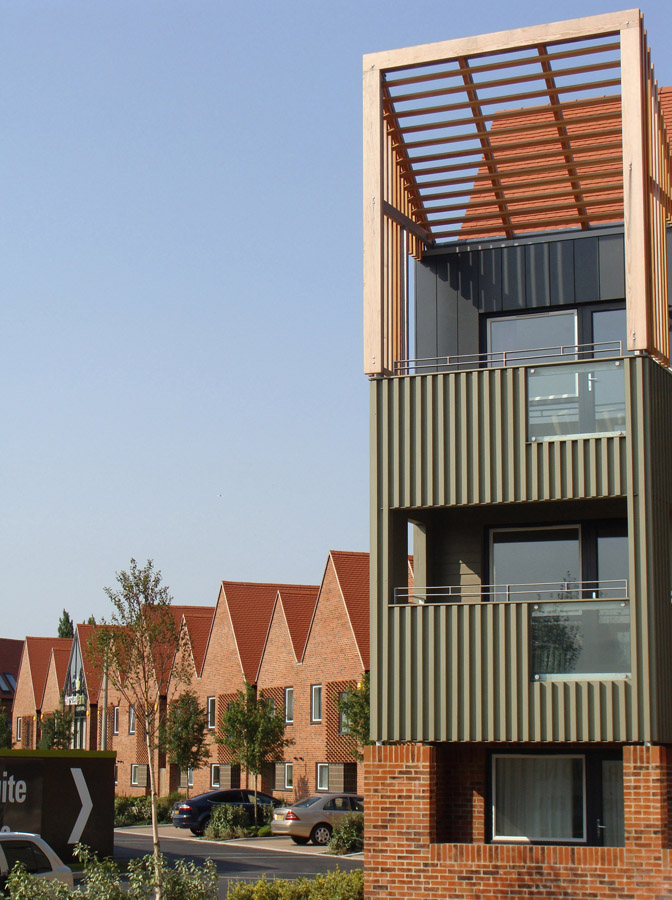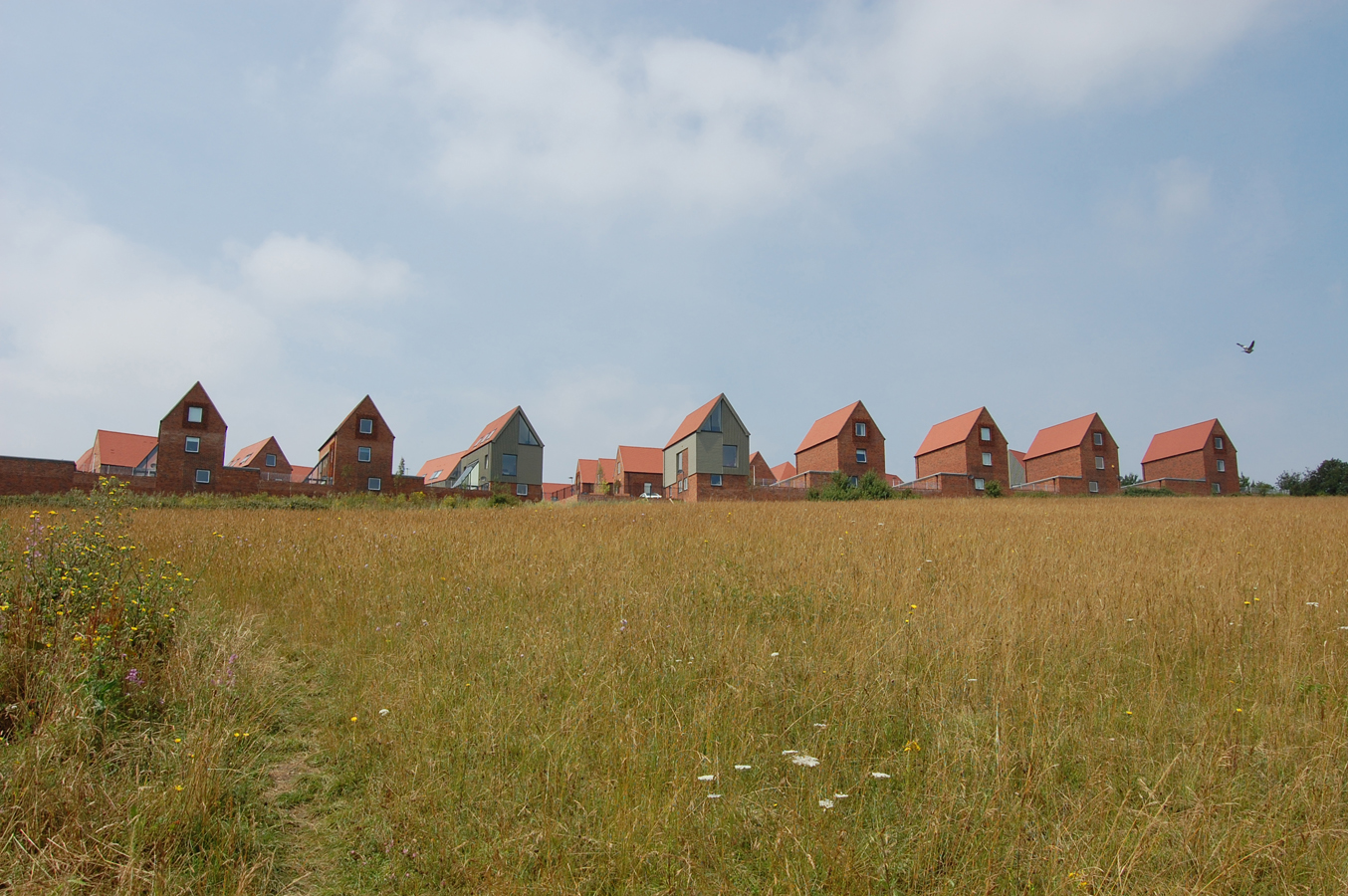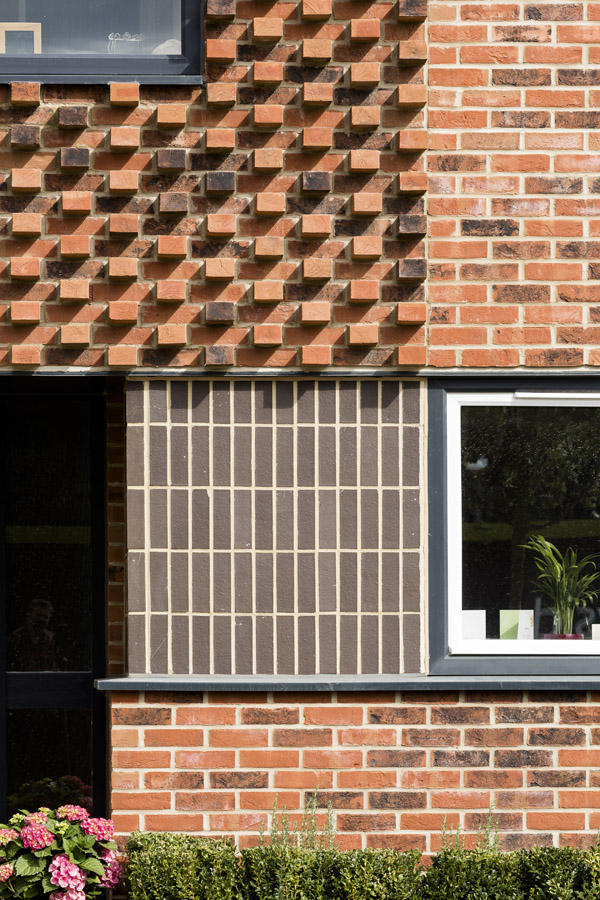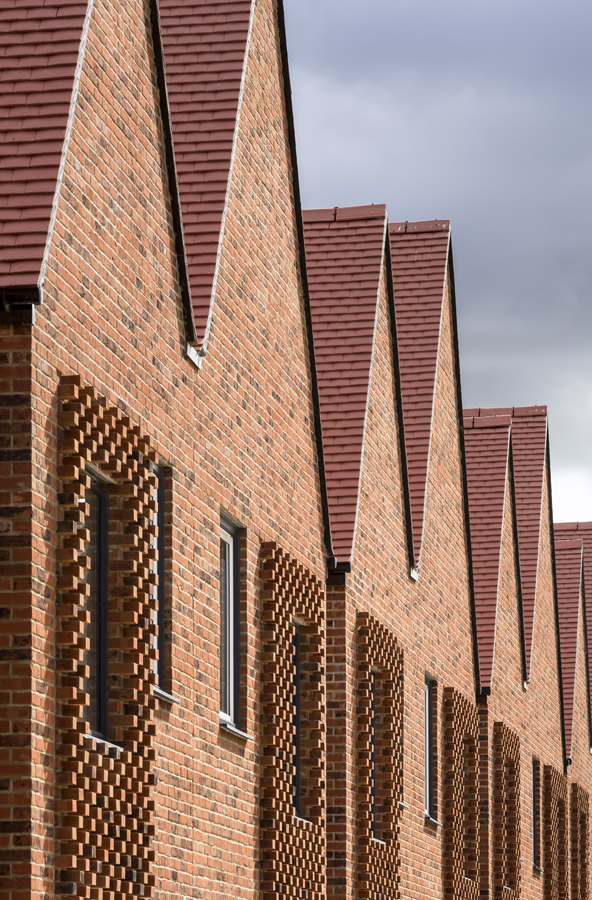Horsted Park
Medway

Project Details
£10m to £49.99M
Set in a pivotal location between Rochester and Chatham, Horsted Park is a mixed-use, mixed-tenure development set in a suburban context across twenty acres of land. Drawing inspiration from the area’s local heritage, the spatial composition of this new neighbourhood explores the variation, intimacy and surprise often found in the spatial enclosures of surrounding Kentish villages. Through taking such cues from the local context, the design successfully creates an environment that has its own unique sense of place, but also feels familiar to its surrounds. In direct response to the site’s semi-rural setting, Proctor and Matthews took the opportunity to develop a series of new housing typologies which, take their cue from the rural vernacular of Kent’s agricultural buildings. Apartment blocks are designed and arranged to resemble local farmsteads, and ‘courtyard’ homes are designed to resemble smaller farmstead barns. Clusters of detached and semi-detached dwellings are arranged and designed to resemble local farmsteads. Consisting of a range of two to four bedroom ‘courtyard’ homes, these two to three storey dwellings are arranged with side gardens in order to take advantage of a southern orientation and also provide passive surveillance over public realm areas. Courtyard homes are arranged around shared courtyards or ‘yards’ creating a focal point for more intimate neighbourhood groupings and sense of enclosure within the wider masterplan. The composition of buildings, access routes and open spaces have been arranged to sensitively respond to the site’s surrounding context. Towards the north is historic Fort Horsted, towards the east and south is open rural land and towards the west is Maidstone Road. Along the northern boundary of the development is an alignment of two storey semi-detached dwellings used to reinforce the geometry of the Fort’s moat. Set-back 10m from the boundary edge, these terrace houses are not only provided with a generous amount of private outdoors amenity space, but also provide a method of securing and protecting the moat from public access. The sites’ massing strategy provides a gradual transition from the site’s more urban edge towards the west and its more rural edge towards the east. Apartment blocks towards the west provide a more course grain, whilst courtyard houses towards the site’s east provide a finer grain. A cluster of taller four storey buildings at the centre of the site provides a townscape marker and focal point for the development. They contain Extra Care accommodation, a retail space and a range of community spaces that include offices and a flexible hall space to be shared by local groups. Additional commercial spaces are also located towards the site’s southwest corner taking advantage of exposure from Maidstone Road. The overarching development consists of 337 new dwellings supported by retail, commercial, Extra Care accommodation and community facilities.



